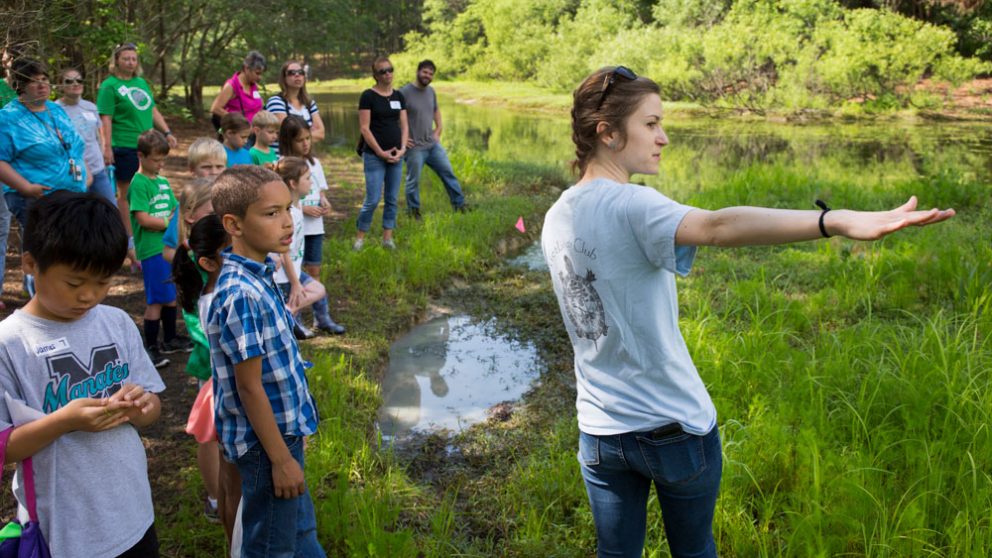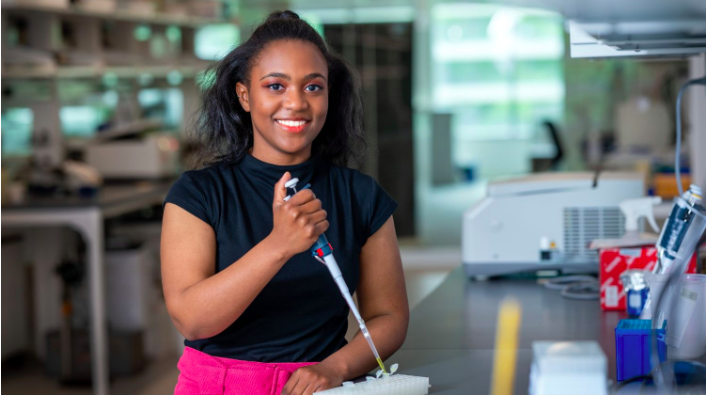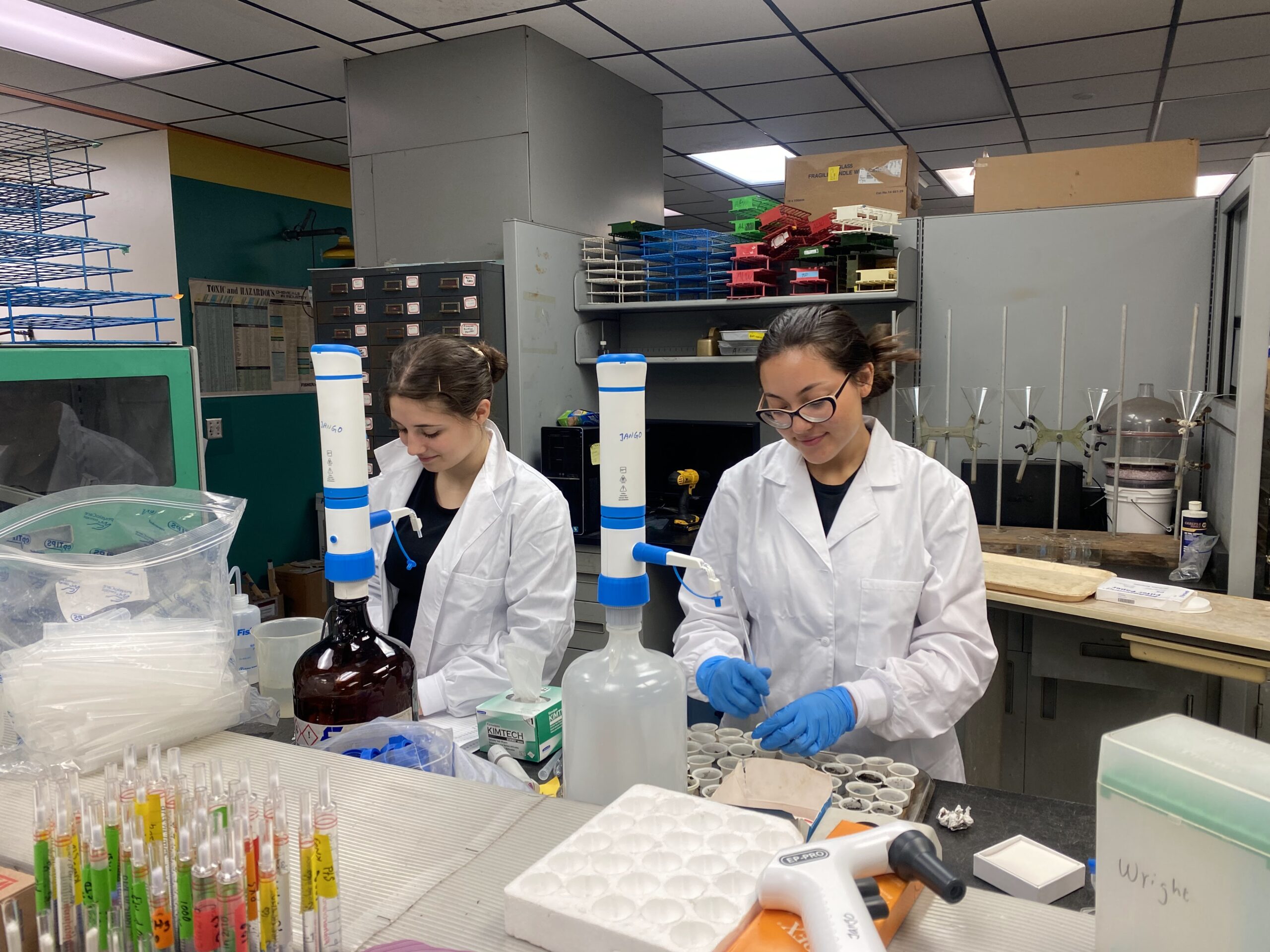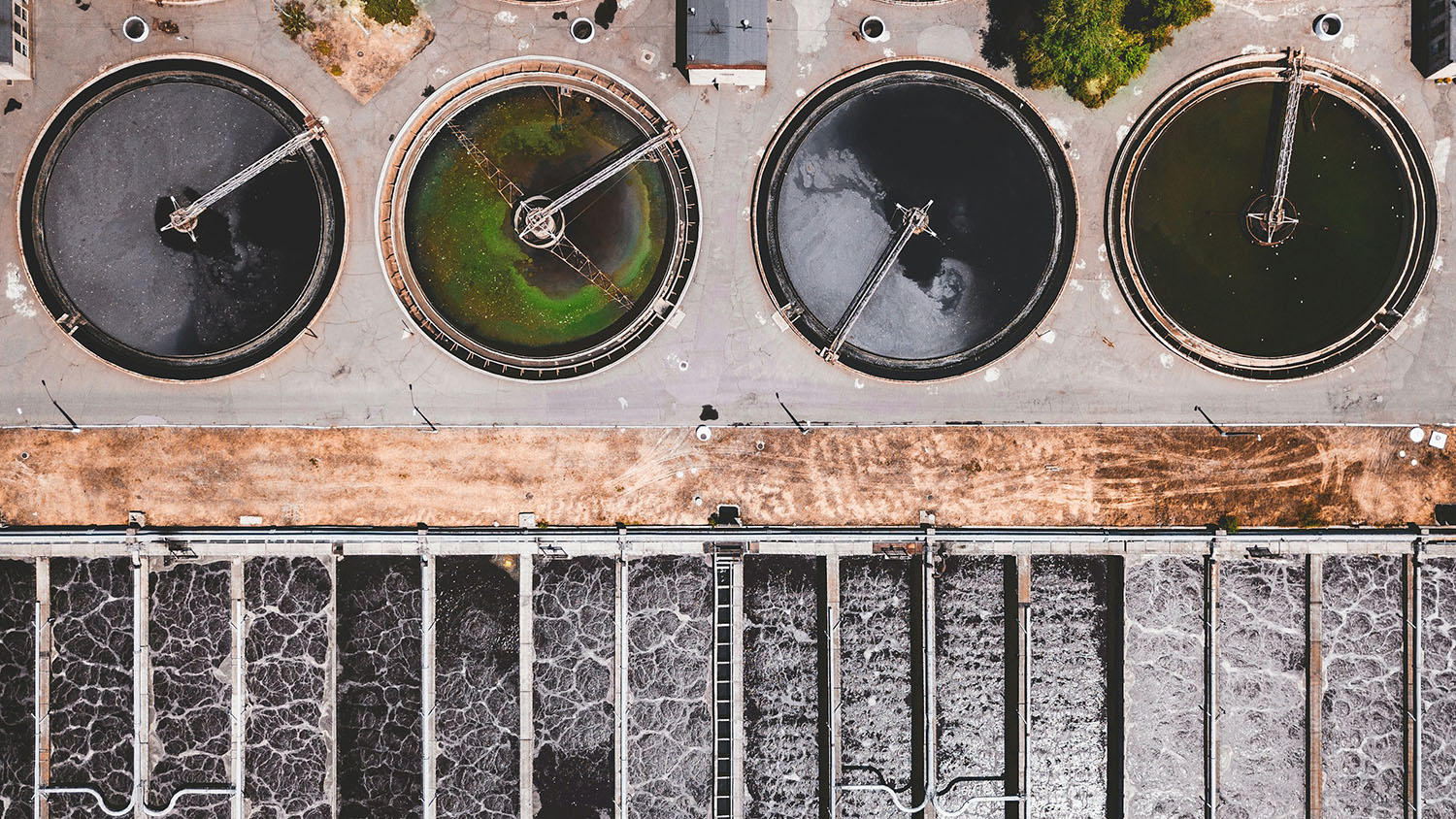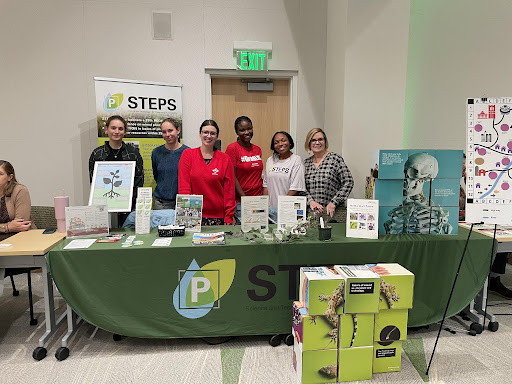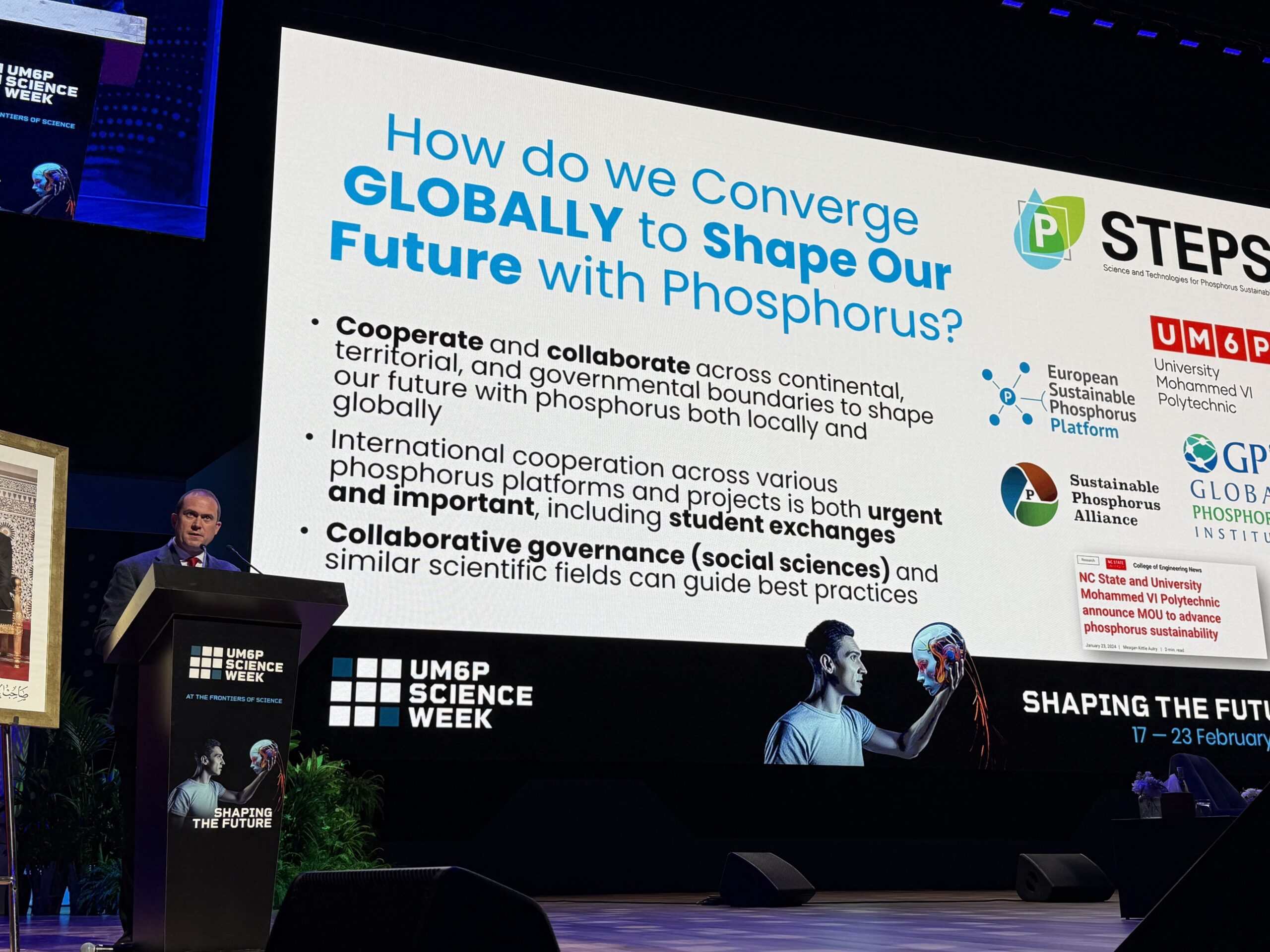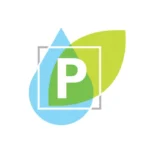Essential Element
Phosphorus is an essential element to life, underpinning many critical biological processes and driving the productivity and sustainability of global food systems.
The Science and Technologies for Phosphorus Sustainability (STEPS) Center is a convergence research community of diverse and leading scientists that addresses the complex challenges in phosphorus sustainability by integrating disciplinary contributions across the physical, life, social, and economic sciences. The STEPS vision is to facilitate a 25% reduction in human dependence on mined phosphates and a 25% reduction in losses of point and non-point sources of phosphorus to soils and water resources within 25 years, leading to enhanced resilience of food systems and reduced environmental damage.
The STEPS Partnership Program
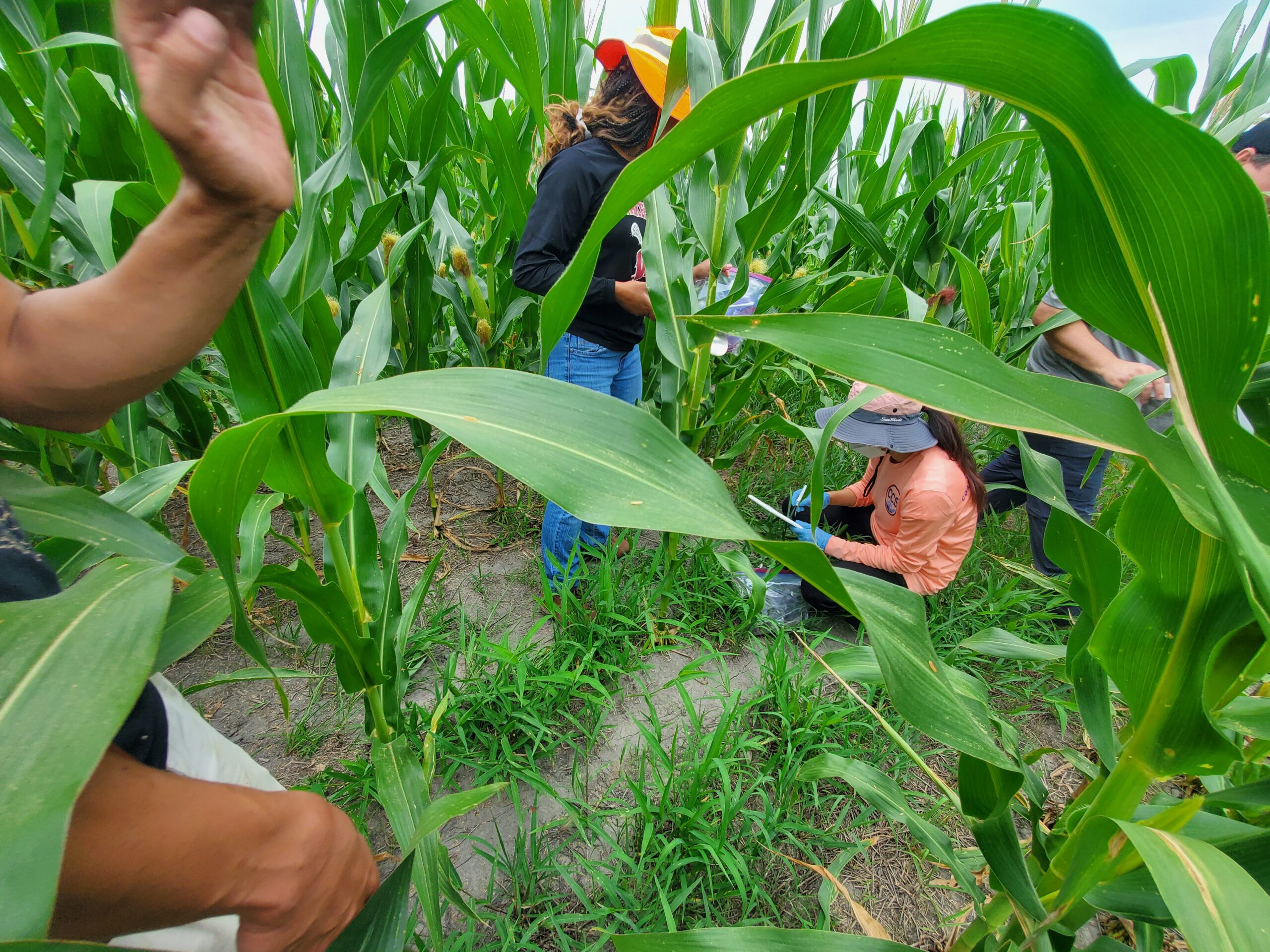
STEPS REU Program
STEPS will support 15 students for ten weeks during Summer 2025 through a multi-institutional Research Experience for Undergraduates (REU) program.
A Roadmap to Phosphorus Sustainability
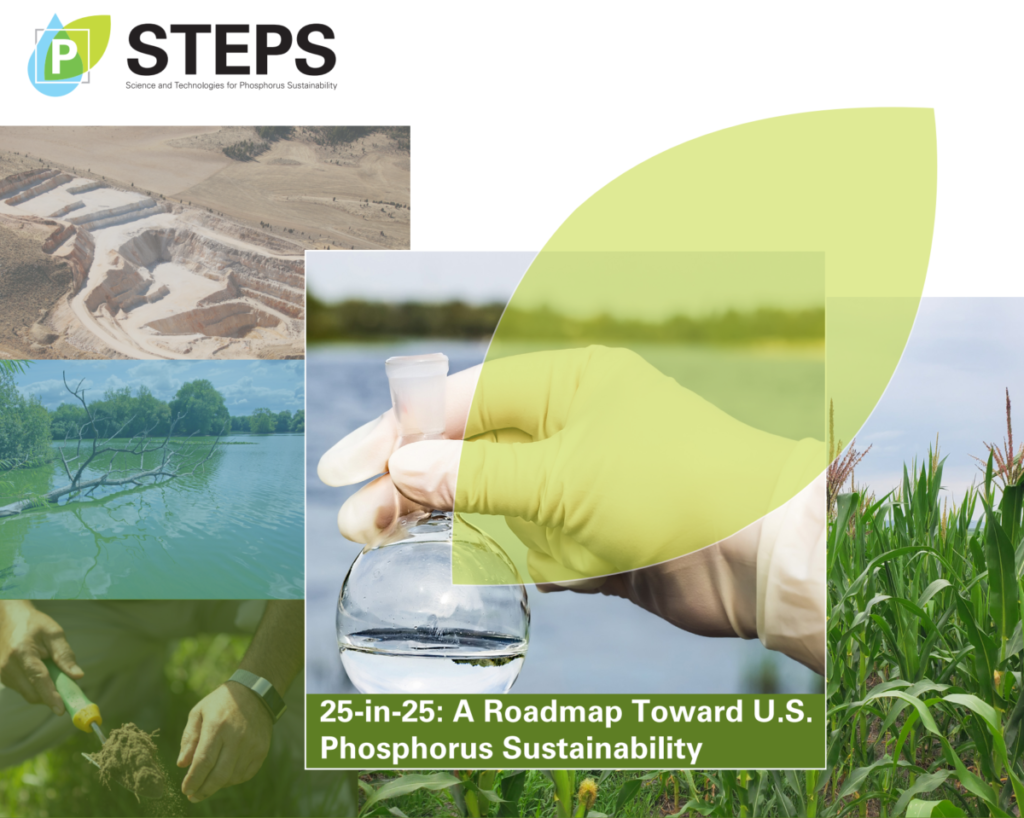
Multi-institutional Research Experience
Convergence research through a collaborative cohort project.
Projects that align research and career interests.
💬 Got questions about phosphate pollution and how hydrogels can help? We’ve got answers.
In this Q&A, STEPS scholar and lead author of a recent publication, Jiangfeng Xu, discusses how their hydrogel differs from materials currently available, cost comparison, and why it matters 🌍💧✨
#PhosphateRecovery #HydrogelTech #ScienceQandA #NSFfunded #NSFstories

A team of STEPS researchers have created a new way to remove phosphorus from contaminated water! Their hard work culminated in a more cost effective and reusable hydrogel material to remove and reclaim phosphorus from wastewater.
💭 They currently hold a provisional patent on the material and are excited to connect with industry partners.
🔗 Link in our story!
#NSFfunded #NSFstories #phosphorus #water

Congratulations to our Co-Deputy Director, Dr. Paul Westerhoff on receiving the Association of Environmental Engineering and Science Professors Foundation Founder`s Award!
🌱 The Perry L. McCarthy AEESP Founder`s Award recognizes Paul`s significant contributions to environmental engineering education and research. We are lucky to have his expertise on our team!
#AEESP

Did you know? 🤔
Recent studies in Europe suggest spent fire extinguishers can positively contribute to a circular phosphorus system. Learn more below ⬇️
💡 Information adapted from the European Sustainable Phosphorus Platform June Newsletter.
#phosphorus #fertilizer #ESPP

A group of STEPS researchers, led by scholar Smitom Borah, recently published "Quantifying Summer Internal Phosphorus Loading in Large Lakes across the United States"!
❓ Internal phosphorus loading (IPL) can have a significant impact on freshwater systems, but IPL estimates are missing for many freshwater systems due to several large-scale measuring and modeling challenges.
💭 The team developed a modeling framework to estimate summer anoxic sediment release rates (SRRs) for P in 5899 large lakes and reservoirs. Their framework combines random forest models with a mixed-effect regression model.
💧 Their results indictate the mean summer SRR ranges from 1 to 37 mg/m2/day, with 31% of waterbodies having SRR greater than 10mg/m2/day. High SRR is generally associated with high predicted surface-water total phosphorus. Overall, their work reveals where IPL can be a critical factor in watershed nutrient management.
#publication #nsffunded #nsfstories #waterquality

We are sending our best wishes to Dr. Flavia Santos on her next endeavors! Flavia worked as a Post-doc in Dr. Jango Bhadha`s lab at University of Florida and brought invaluable experience to the team.
🌱 She has worked with one of our key partners, Embrapa, since 2002 and did research in Dr.Bhadha`s lab for a year.
#postdoc #universityofflorida

Also known as your favorite convergence research center. 🌱
#phosphorus #nsffunded #nsfstories

Congratulations to Alondra Deras and Lucas Crane on earning best poster awards at the Association of Environmental Engineering and Science Professors Conference!
🌱 Other scholars who presented:
- Maheen Mahmood
- Jenny Ding
#nsffunded #nsfstories #AEESP2025

🎓 Off to new beginnings! Join us as we celebrate our amazing scholars and cheer them on to their next chapter. The future is yours - go make it incredible!
🌱 Moving into new academic or job opportunities are (from top left to bottom right):
Amber Meeks, PhD (NCSU)
Raphael Ayivi, PhD (JSNN)
Josephine Geraghty, MS (NCSU)
Brian Baird, MS (NCSU)
Carileigh Jones, PhD (UIUC)
Corie Griebel, MS (NCSU)
Hezhou (Jenny) Ding, PhD (NCSU)
Marwan Sa`ed, PhD (JSNN)
Nathan Brown, PhD (NCSU)
Angela Sajewicz, BS (App. State)
Gabriel Ethlenberger, BS (NCSU)
#nsffunded #nsfstories #graduation

Congratulations to Dr. Shwetha Delanthamajalu on a successful dissertation defense and graduation from University of Illinois in Urbana-Champaign!
🌱 In STEPS, Shwetha worked with Dr. Anna-Maria Marshall on the Adoption of Innovation project as well as made many other contributions to multiple projects in the center.
#phD #graduation

Looking to engage with stakeholder but don`t know how to start? ⬇️
We are proud to release two pivotal guides and accompanying videos aimed at enriching stakeholder engagement in both academic and community settings. These resources are designed to empower educators, students, and community leaders with effective strategies to foster meaningful participation and collaboration.
Find the full article and find the resources in our story!
#nsffunded #nsfstories #stakeholderengagment

🏆Our education research team completed a highlight year!
Through their outreach activities and instructional material development, an estimated 130,000 students have learned about phosphorus sustainability. Their tangible landscape activity received the Freilich Student Visualization Award at this year`s AGU conference. Additionally, PhD scholar Amber Meeks successfully defended her dissertation, earning her doctorate in Education at NC State!
Link to the full article in our story!
#nsffunded #nsfstories #education



